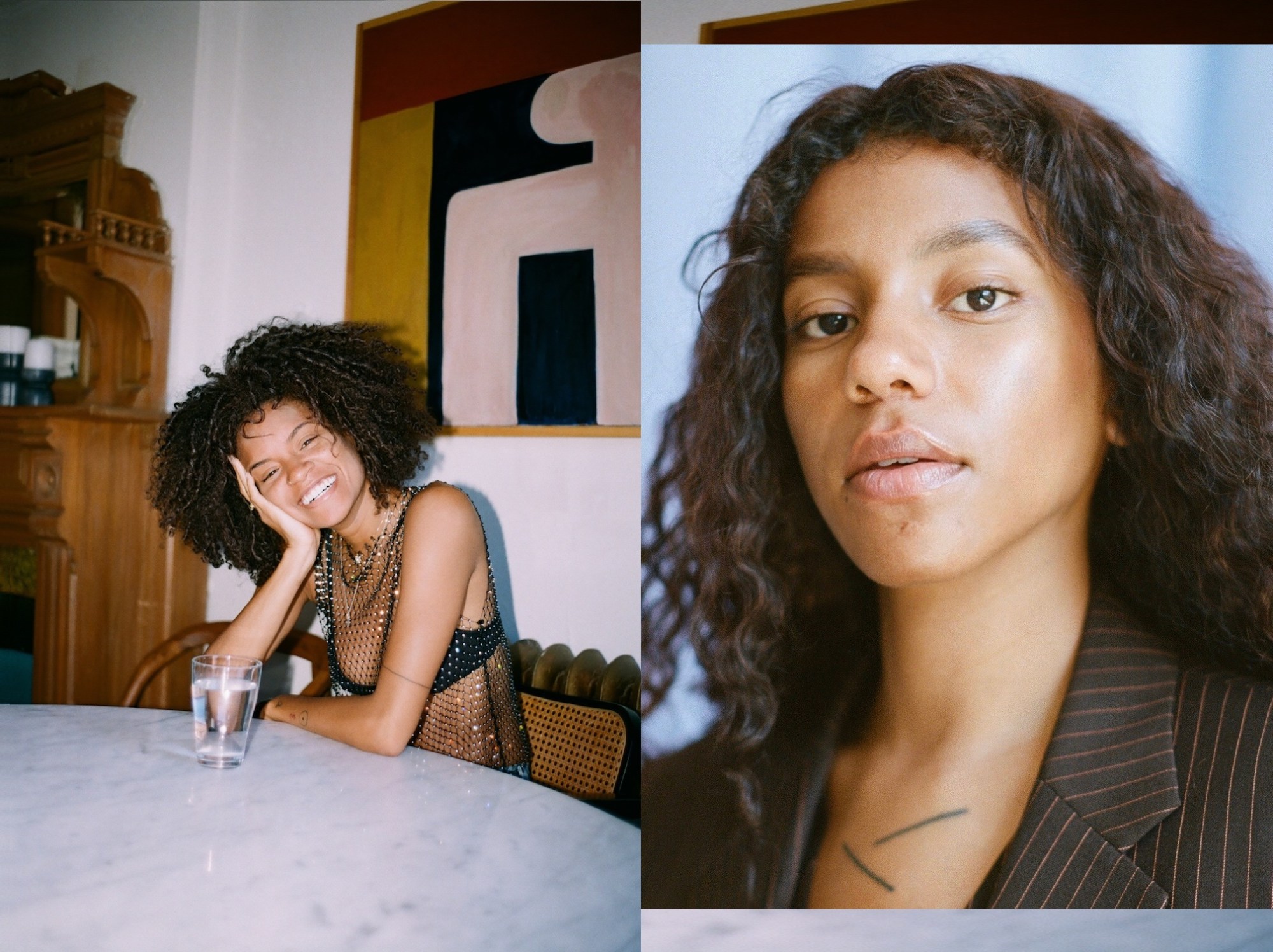Black women, while more visible than ever in popular culture, are still wildly underrepresented. For example, of the top-grossing 100 films of 2017, just 2.5 percent of the speaking characters were Black women (or 18.5 percent if the film had a Black director. But the problem isn’t just about inclusion, it’s also about misrepresentation. When Black women do appear in movies, TV shows or music videos, they are often objectified or portrayed as stereotypes. As a 2013 study in Essence found, negative depictions of Black women appear twice as often as positive. “Black women are multifaceted and multidimensional individuals who possess a rich breadth of feelings, emotions, identities and experiences,” says Shydeia Caldwell, the founder of Black Girl Magik. “The problem is that pop culture only portrays one-dimensional visions of Black womanhood.” So we at i-D asked eight inspiring Black women — Kenesha Sneed, Candace Reels, Armina Mussa, Anajah, Rikkí Wright, Valencia D. Clay, Kai Avent-deLeon, and Shydeia Caldwell — to share their thoughts on their representation in pop culture. In the insightful interviews that follow, they talk about the media that best reflects their experiences; harmful stereotypes; and how they’re changing the narrative.
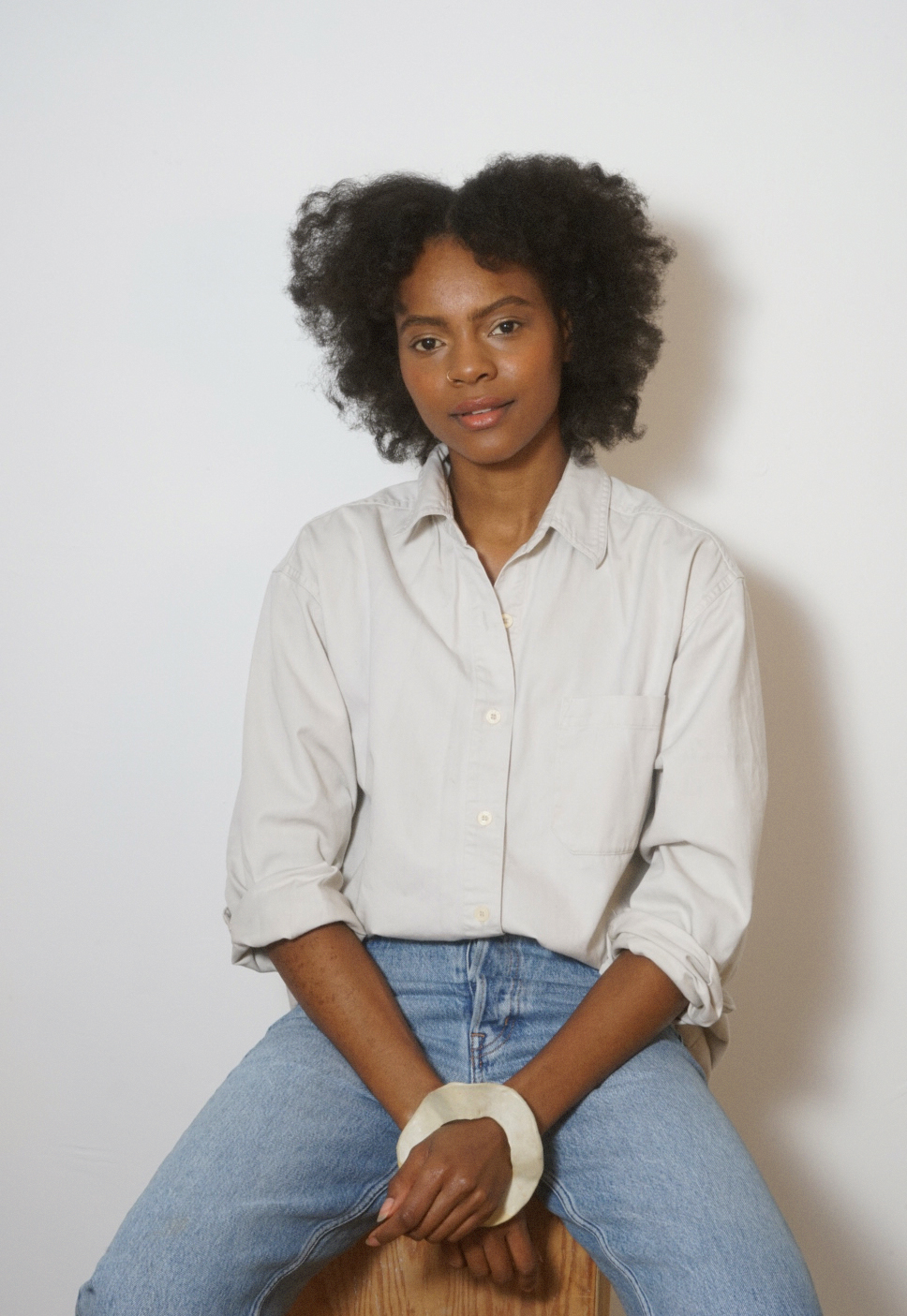
Kenesha Sneed, multidisciplinary artist and art director
What was the first show, movie or book that you remember identifying with?
My mother encouraged diversity in the things my brothers and I consumed growing up. She made sure there were Black figures by Black artists in different parts of the house. It was important to see us reflected back at ourselves… I grew up on all the iconic TV shows of the 90s, but it wasn’t until watching [Zelda Harris in] the film Crooklyn, that I identified with [a] character so hard — from her family interactions to the overly aware adult-like approach told from a young girl’s perspective. She helped me identify with the Black girls who threw people off due to our layered complexities. She was nice and unapologetically not the one to mess with at the same time…But the actions that stuck with me most growing up are with my childhood girlfriend Aiesha. We had Janet Jackson performances recorded on VHS and we’d learn all the choreo by pausing, rewinding and playing it in slow motion until we got it right. Those moments are ones I’ll never forget.
What show, movie or book best represents Black womanhood?
Last year I read Brittney Cooper’s Eloquent Rage, which challenges anyone reading to deep dive and submerge in vulnerability. She had me at “Our victories belong to everyone, even though we do all the work.” I’m still in my feelings, in the best way…Also, Insecure is one of those shows out there that just gets me. I’m convinced Issa Rae and I are sisters separated at birth; I refuse anyone to tell me otherwise.
What is still problematic about the way Black women are represented and/or portrayed in pop culture?
I’ll always feel there’s plenty of room for more diversity and inclusion in every space, not just in TV and film. Black women work so hard, so it’s also important to pay us for the time and energy it takes to create in these spaces.
What can people do to change that?
Continuing to put WOC in more positions of leadership to make the decisions that ultimately shape what we visually digest is always a step forward. It’s not just about using a Black model to be the face of your brand — it’s ensuring the voices in the creative meetings are just as diverse and inclusive.
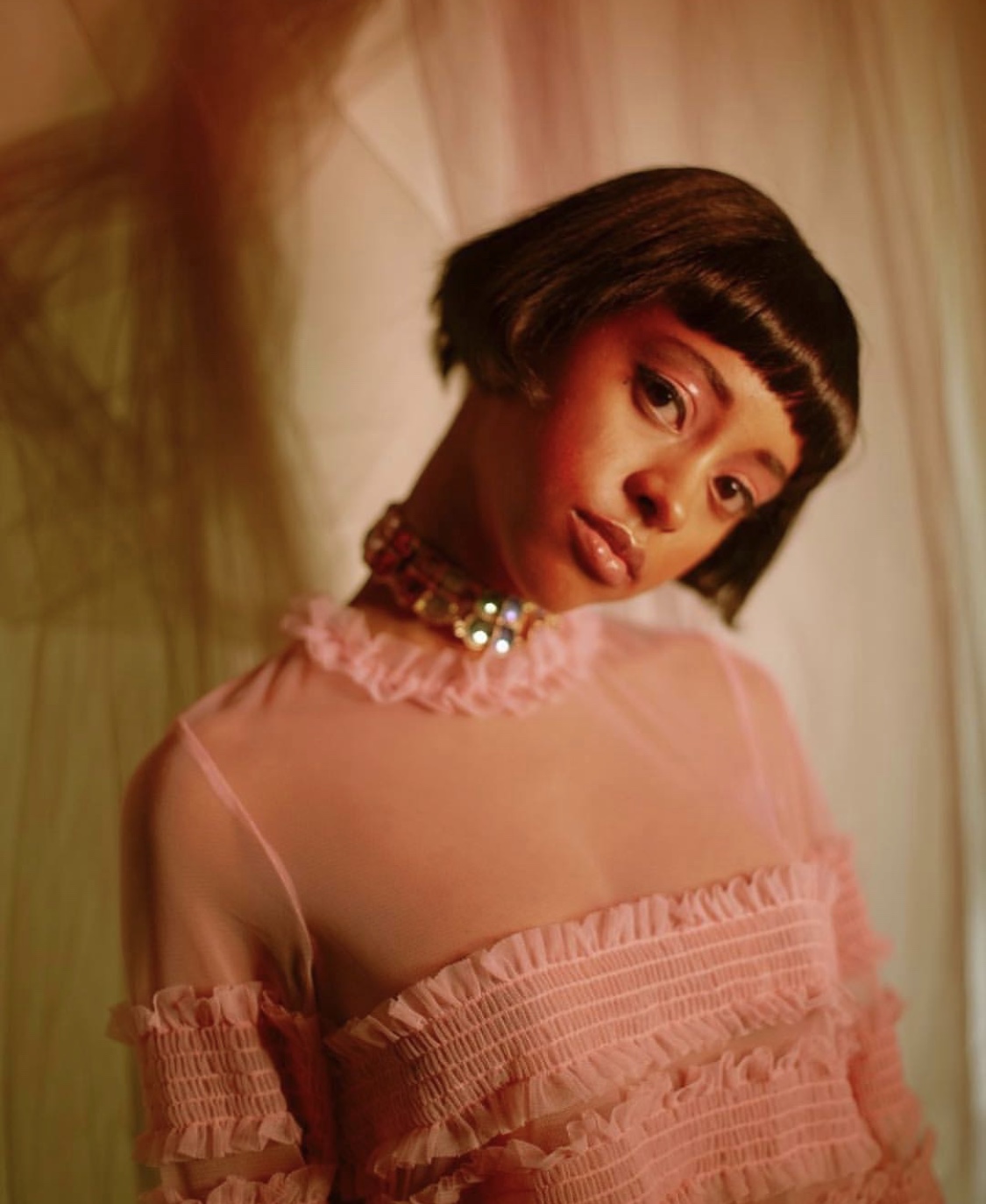
Candace Reels, founder of Female Collective
What was the first show, movie or book that you remember identifying with?
Some of my favorite shows growing up were The Fresh Prince Of Bel-Air, Sister, Sister, Family Matters and Kenan & Kel, but one that I really related to was Moesha, about a teenage Black girl growing up in Los Angeles. I was much younger than Moesha, but I related to her because I too was a Black girl growing up in Los Angeles. Being able to see a middle-class Black family on television was so important because it was something you didn’t see often. Representation matters, you want to be represented and see yourself in television, movies, magazines and know that you too are someone that should be acknowledged and celebrated.
What show, movie or book best represents Black womanhood?
Even though I was too young to fully relate to the incredible characters, Living Single was also a great representation of Black womanhood. As for books, I would say I Know Why the Caged Bird Sings by my absolute favorite Maya Angelou. Any book by her is highly recommended!
What is still problematic about the way Black women are represented and/or portrayed in pop culture?
I still don’t feel like there are enough Black women being represented. I want Black women to be able to not only have their stories be shared, but be the ones to do so. Be in front of the screen and behind it!
What are you doing to change that?
On Female Collective, I make sure as a Black woman to share my experience and share other Black experiences on the platform. All Black experiences are not the same and people need to know that. I know what it’s like growing up as a young Black girl and not seeing yourself represented. I don’t want that for this generation of young Black girls. I want the Black girls of today to know that you don’t need to ask for the seat at the table. Create your own platforms, television shows, movies, books, clothing lines, etc. Let’s continue to share our stories and lift each other up, because we are capable of achieving any and everything we set our mind to.
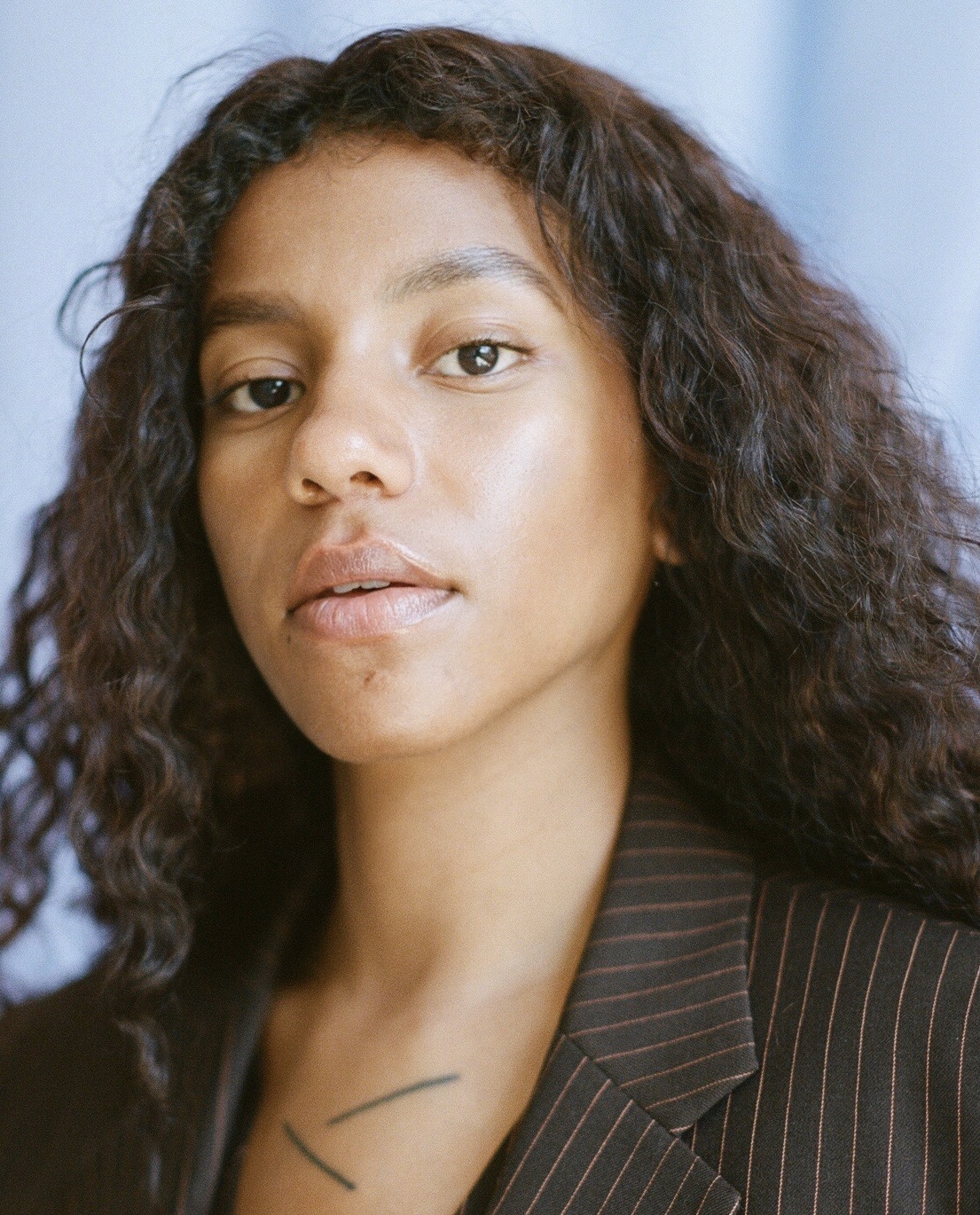
Armina Mussa, visual artist
What was the first show, movie or book that you remember identifying with?
Mufaro’s Beautiful Daughters by John Steptoe and the The Rough-Face Girl. I recall feeling emotional and in a trance by both books. The illustrations spiked so much curiosity for art — it felt beautifully dark and matched my insides. These stories mirrored some aspects of my life culturally. Both stories of young women seemed to be grounded in the societal construct of women: young girls needing the grand approval of self and our successes in life from a man. I seen these stories with my own eyes growing up, with my mother and aunties.
What show, movie or book best represents Black womanhood?
I love both Girlhood the feature film and Girlhood the documentary. Both very strong representations of Black women in America and Europe. The doc, directed by Liz Garbus, follows two female inmates — Shanae, in particular, who has accumulated an astonishing amount of trauma within her short life. At 10, she suffered a hideous gang rape; alcohol and drug abuse followed; then she murdered a friend. Megan, on the other hand, dealt with a mother addicted to heroin, and, after fleeing numerous foster homes, attempted to stab another child. This documentary follows these two bright-but-troubled young girls at the Waxter Juvenile Facility in Baltimore as they struggle their way toward redemption and understanding. Toddler-Hunting and Other Stories by Taekon Kono, one of the most important Japanese women writers of the second half of the 20th century, she represents womanhood generally, creating stories about women in post-war Japan. Everybody Dies directed by Frances Bodomo. A whole Mood: Marpessa Dawn in Black Orpheus. The Transformation of Silence into Language and Action by Audre Lorde. The Emancipation of Mimi by Mariah Carey, one of my favorite records ever. Takes me back to a teenager every time.
What is still problematic about the way Black women are represented and/or portrayed in pop culture?
Where white women are said to be standing up for themselves, Black women are seen as wanting a fight. We are still unseen and society has successfully exploited the cultural psyche of Black women. I hate how much pain everyone feels we are still capable of enduring. We are a glimmer of light, spirited and gentle, too.
What are you doing to change that?
I speak about personal traumas in my work as a coping tool for myself and other Black women. It’s a powerful spherical way of connecting with other Black women (almost all of us) who have experienced sexual abuse and a great deal of betrayal by the world. With this, I think about creating insular spaces for us to exist in because fuck the world we live in. I almost mean that literally but I say that because we need a place of our own. Without being sexualized, robbed culturally, and to ultimately heal. There needs to be a great understanding of the Black woman experience with no question.
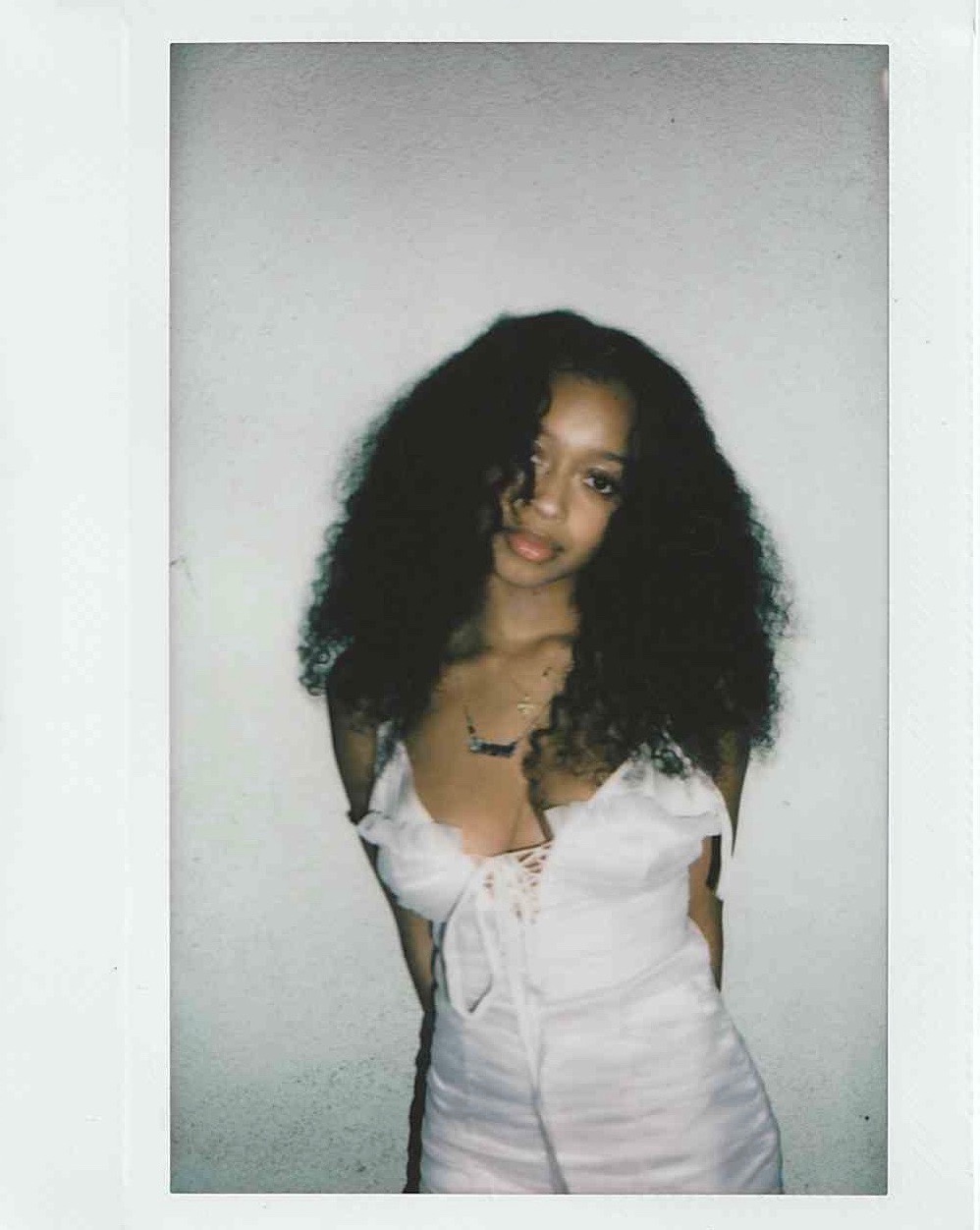
Anajah, musician
What was the first show, movie or book that you remember identifying with?
Growing up, shows that had strong women leads resonated with me, but when it came to seeing women that looked like me, I was obsessed with Proud Family and Sister, Sister. In the 2000s, I don’t really remember many shows where Black women had deep or complex storylines, Black girls were always the sassy sidekick or someone who was considered aggressive and mean. So it was really amazing to see girls on TV that I could relate to on a physical level, but had actual personalities, problems at school and with family. It was refreshing to see real situations occur.
What show, movie or book best represents Black womanhood?
A present show is Grown-ish. It follows the lives of young women in college and the lead character of the show is a Black woman. It’s a great show, it’s funny, and it touches on topics that I think all Black women speak on amongst ourselves and with friends. A past show that I would say is a great representation for Black womanhood is Girlfriends. That show, in my opinion, is a classic. It revolves around the lives of four Black women who come from different socioeconomic backgrounds, careers, and are goal oriented. Each character is unique with very in-depth character development; there is someone that everyone can relate to.
What is still problematic about the way Black women are represented and/or portrayed in pop culture?
Whenever we speak up, we are considered to be “Angry Black Women,” which I know is extremely detrimental to our livelihood. Being seen as angry discredits us and allows people to justify why they don’t recognize us as actual people who deserve love, who deserve to exist, people with emotions that surpasses anger, and intellectual/complex thoughts. Anger is synonymous with a lot of negative traits and it’s putting Black women in a multitude of dangerous situations and unsupportive spaces. Being an angry Black woman perpetuates so many harmful ideas about Black womanhood and our inherent femininity. The conversation of Black women being angry is constantly brought up whenever something major happens in the media. What we say is used as clickbait. It’s truly unfair that we are not able to discuss how we feel without being attacked for it and told that we are being “hateful.”
What are you doing to change that?
How I’m changing this issue is by using my platform to talk about what I feel. I use my art of creating music to show the multidimensional aspect of Black womanhood and Black femininity. Being a Black woman should not be seen as a derogatory or monolithic way of existence. I say what I feel in a magnitude of ways and I discuss topics that ring true to me. I start conversations with people who follow my platforms and with my peers about topics that matter. I just think it’s best that we continue not to hold our tongues and to always say what’s on our minds… What I think people can do to fix this issue is to change how you view Black women… Dismantle all the ideas you have about us, and see us for who we are: human beings… We should not be held accountable for our stereotypes, because every day we are dismantling them in our own ways.
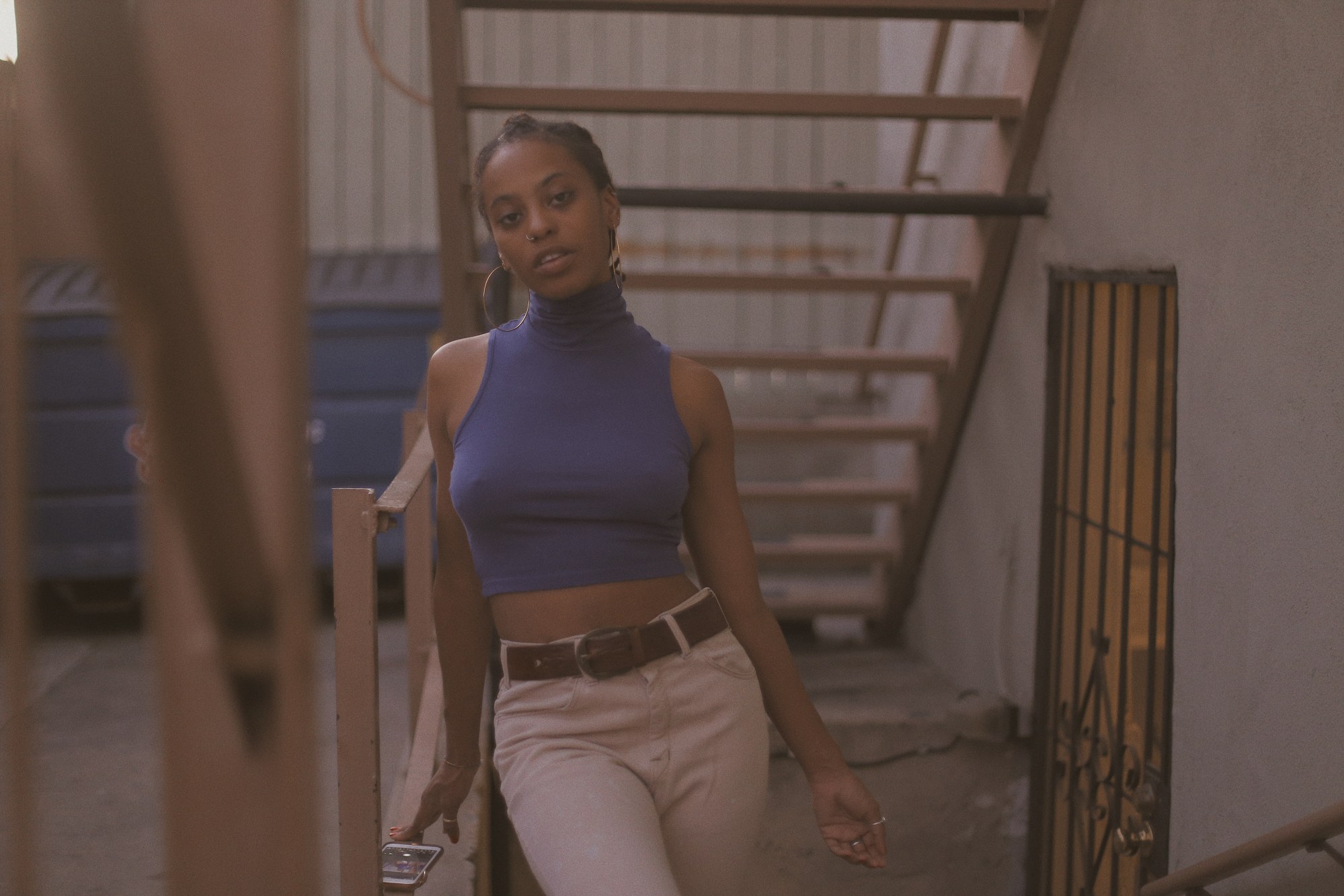
Rikkí Wright, photographer
What was the first show, movie or book that you remember identifying with?
Spike Lee’s Crooklyn. How he so vividly displayed parts of my life through the character Troy. In the film (for those who haven’t seen it yet), the family leaves Brooklyn for a trip to the South to stay with affluent relatives, and Troy stays behind for the summer. Which is something I did every summer with my sister. After my mother passed, it was arranged that my sister and I spend summers in the South with that side of our family. I related with Troy when she lost her mother; I think it was important for me to see how she dealt with grief. She was only 9 but remained very stoic, and also embodied her mother, assuming the matriarch role.
What show, movie or book best represents Black womanhood?
Over the past couple of years, I have been reading Dr. Maya Angelou’s autobiography series. She wrote seven autobiographies ranging from the years of 1969 to 2013, all which include themes of racism, identity, family and travel. [These] are prominent themes in my work [also]. I kind of joke with my friends about how she’s teaching me so much from the afterlife, because it wasn’t until she passed away that I discovered her other writings beyond I Know Why the Caged Bird Sings (which is the first of the seven autobiographies). What I like about being able to follow her life is that I am able to have this tangible account of someone growing and maturing, making mistakes and learning from them.
What is still problematic about the way Black women are represented and/or portrayed in pop culture?
The fact that there are people other than Black women trying to represent, portray or tell our story. More Black women are being given (or creating) the opportunity to tell their story, but we need more. I believe there’s room for more.
What are you doing to change that?
I am reclaiming my position as the storyteller. By creating, writing, capturing, [I am] forever engraving our story into the minds and hearts of those who view my work. Taking a folklorist approach to the way I choose to document the Black women in and around my life is the necessary approach for me to change that. Giving true accounts and insight into the life of the Black woman as a means to teach others.
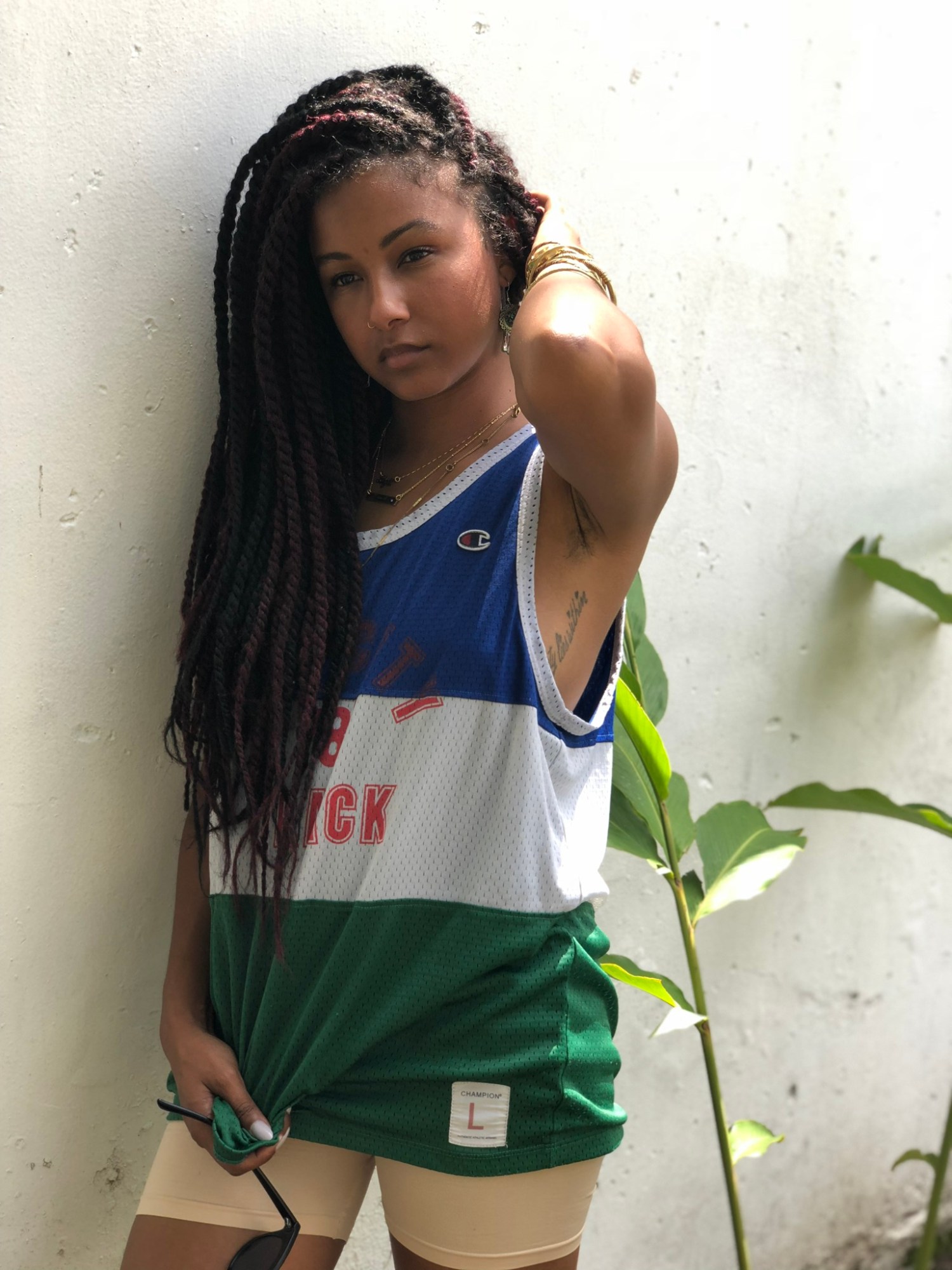
Valencia D. Clay, teacher
What was the first show, movie or book that you remember identifying with?
Movie: Just Another Girl on the I.R.T. Book: The Coldest Winter Ever. I was in 8th grade when I saw and read these. I saw myself heading down the same path as both main characters, Winter and Chantel, as I only dated guys who could provide for me, no matter how they were getting the money. Just like those characters, I was a New York girl who was smart but my priorities were not about school. Winter and Chantel showed me who I could become if I did not make responsible decisions and put my education before any frivolous, materialistic nonsense.
What show, movie or book best represents Black womanhood?
Sula by Toni Morrison, Their Eyes Were Watching God by Zora Neale Hurston, Sister Outsider by Audre Lorde, A Raisin in the Sun by Lorraine Hansberry, I Know Why the Caged Bird Sings by Maya Angelou, are all classics. They show us in many different shapes and forms. Each leading lady of these books can teach us about how to discover who we are and how to achieve life’s ultimate purpose: the freedom to grow.
What is still problematic about the way Black women are represented and/or portrayed in pop culture?
Black women in reality television are often portrayed as bitter, petty, irrational, melodramatic, and both verbally and physically violent. Yes, sometimes we act like this, but only when we know no other way to cope with our anger. Instead of encouraging and educating us on how to seek help and guiding others to do the same, the media promotes a culture of broken Black women, as a means of entertainment.
What can people do to change that?
We have to get to the root of our issues, instead of letting our issues uproot us. We all can learn about the grieving process and understand how to journey toward acceptance, instead of living in anger. As a teacher, I use restorative circles to support emotional intelligence as often as I can. Infusing mindfulness into daily lessons takes a little extra planning but will affect my teenage girls into adulthood.
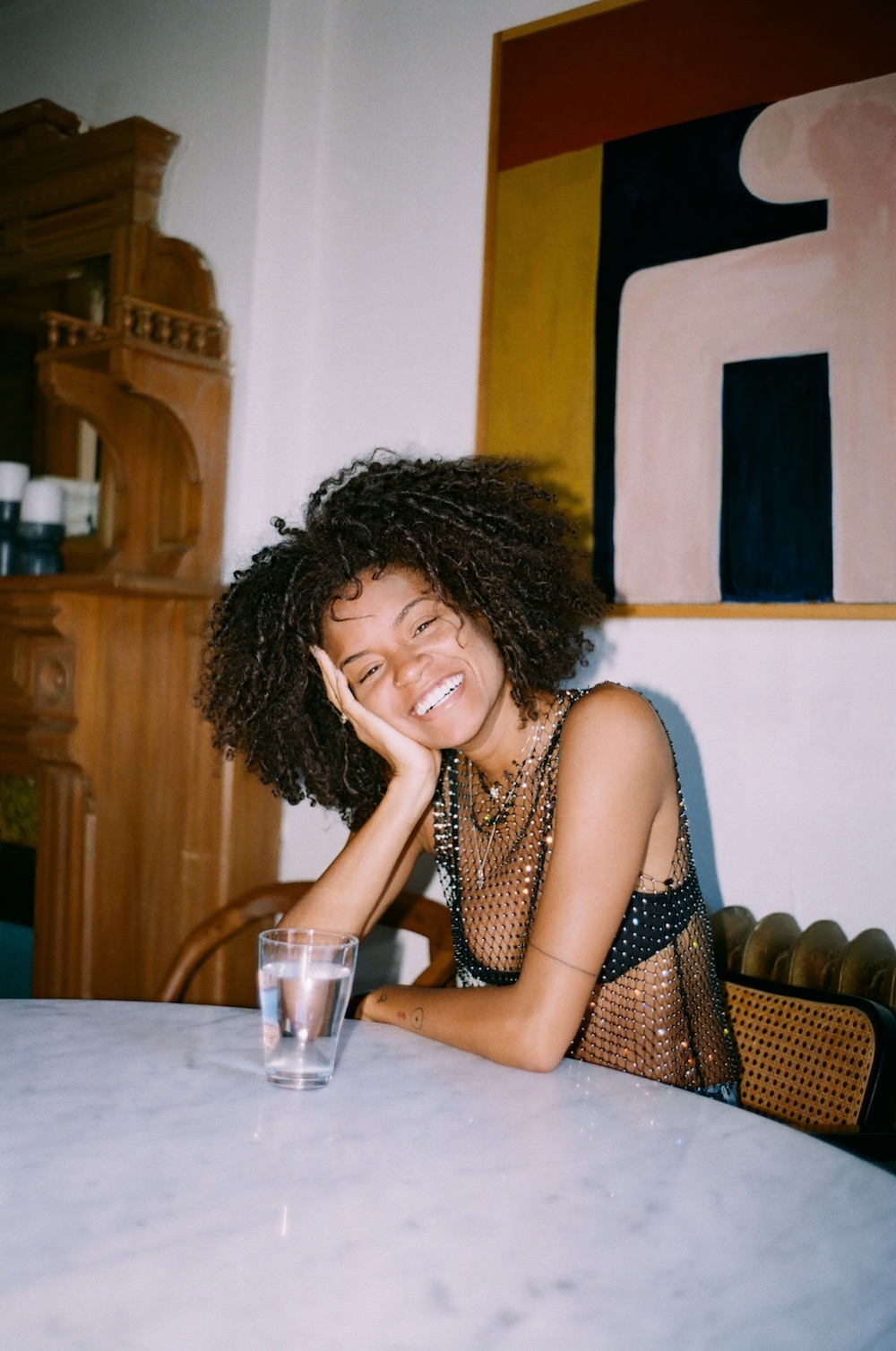
Kai Avent-deLeon, Owner of Sincerely Tommy
What was the first show, movie or book that you remember identifying with?
I think it would have to be Welcome to the Dollhouse and Crooklyn. Welcome to the Dollhouse was a cult classic for me. Here’s this really oddball character but her interests are actually really cool and she’s the only thinker amongst her peers and family. She just didn’t fit in — in a great way… Crookyln is just really nostalgic. I grew a few blocks from where they were filming and would walk by with my mom during production. They even asked if I wanted to be an extra. But I remember loving the film because the little girl looked like me: brown girl and grew up in my Bed-Stuy. It was special.
What is still problematic about the way Black women are represented and/or portrayed in pop culture?
I see a lot of brown and Black [women] portrayed as a “type” too often. We come in all different shapes and sizes and tones. But more times than not, you can expect to see a certain kind of Black woman representing the whole when it comes to fashion or entertainment. For instance, I’m a film buff, and I’m used to seeing white women represented all kinds of ways. There’s literally an actress that can represent so many different characters. But with Black actresses or models, or in a lot of creative realms, we get boxed in. We don’t have the same platform to show that we don’t just come in three makes or models.
What are you doing to change that?
I am who I am. I think I change the norm just by being me. I don’t conform to what might be expected of me. I think being who you are can change that.
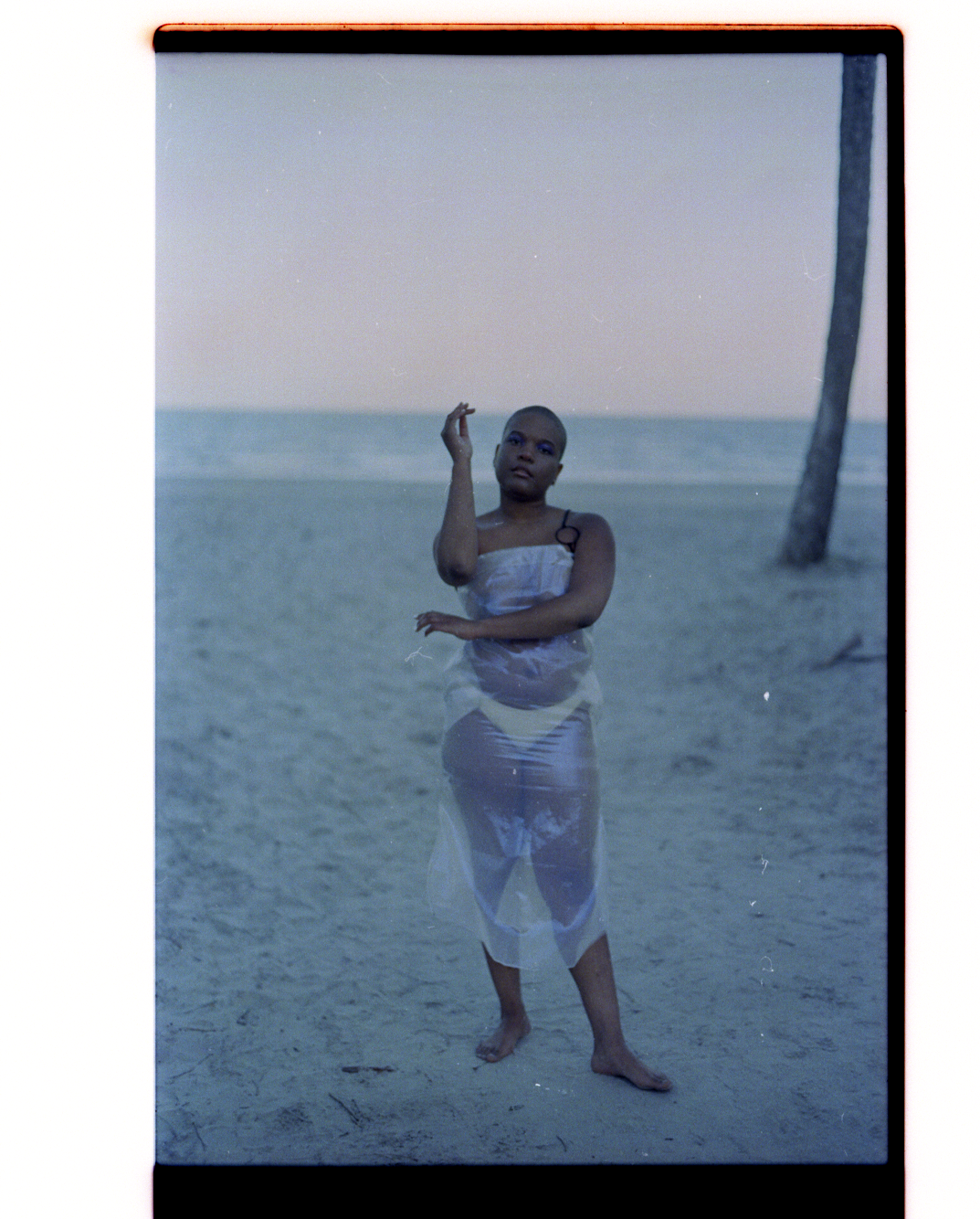
Shydeia Caldwell, multidisciplinary artist & founder of Black Girl Magik
What was the first show, movie or book that you remember identifying with?
The first books I remember identifying with are by Sister Souljah, Sharon G. Flake, and Joyce Hansen. Throughout my girlhood, I attended three middle schools and four high schools over a span of seven years. My mother moved us nearly every single year. As a result, it was hard for me to form meaningful and long-lasting relationships. During this period in my life, I discovered a voracious love of books. Books became symbols of comfort, consistency and self-discovery. They gave me intimate access into diverse realities without me having to actually live those experiences. The stories I found in books empowered me, educated me and informed me about life. The Sister Souljah books in particular were important because I deeply identified with how the stories centered on the experiences of Black folks. I found a connection to the stories of women who looked like me. Without immediate access to the narratives of older cousins and girls in my age range, I learned the lessons of girlhood and womanhood through fiction and non-fiction stories.
What show, movie or book best represents Black womanhood?
The following [are] incredible films, a book and a music video that represent the beauty of Black womanhood: Rebirth is Necessary by Jenn Nkiru; Some Sing, Some Cry by Ntozake Shange and Ifa Bayeza; Nina by Anaïs; The Ancestors Came by Cecile Emeke; Daughters of the Dust by Julie Dash. I feel a distinct resonance to Daughters of the Dust and Some Sing, Some Cry because they both take place in the low country of South Carolina, which is where I am from.
What is still problematic about the way Black women are represented and/or portrayed in pop culture?
The assumption is that Black women can’t be many things all at once. Pop culture has formed prototypes — prototypes of what intelligence, sexiness, humor and so much more is allowed to look like for Black women. There’s little to no room for the intersectionality of truths. A disturbing portrayal in pop culture and interwoven into society’s consciousness is that Black women and Black people from low-income areas do not possess rich, cultivated and informed understandings of the world. Assumptions like these are inherently racist and anti-Black. Portrayals that do not accurately illustrate our depth deny the totality of our humanity, which isn’t solely problematic — it carries tangible and intangible harms. Furthermore, it’s dangerous to perpetuate Black women without the beauty of our complexities and without the room for our possibilities.
What are you doing to change that?
I’m creating change through Black Girl Magik. BGM creates space for proper representation by giving Black women the opportunity to represent themselves. Our workshops, community programming, online content and creative productions are for Black women, by Black women. People can support change by providing resources and financial support to Black women who are creating space and sharing the work of Black women.
